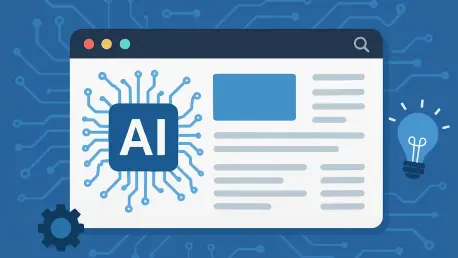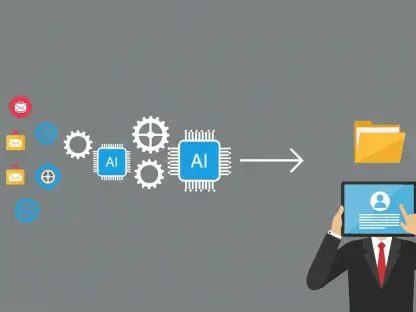In a fast-paced digital world, the transformative promise of AI-powered web browsers captures imaginations and inspires significant dialogue. These browsers, enhanced with artificial intelligence, create a new browsing paradigm by automating routine tasks, offering intuitive assistance, and fundamentally changing the way users interact with the internet. The introduction of browsers like Comet by Perplexity marks a pivotal shift, much like when Netscape first brought the internet to a global audience.
The Evolution of AI-Powered Browsers
Growth and Adoption
The proliferation of AI-powered browsers is evident in rapidly growing adoption rates. Reports indicate that from 2025 to 2027, over 60% of internet users will embrace AI-infused browsers. This surge signifies widespread industry acceptance and showcases a dramatic leap in consumer expectations. Browsers featuring AI capabilities are increasingly preferred for their ability to streamline user experiences, offering seamless navigation and tailored search results. The shift is underscored by a burgeoning consumer demand for smart, responsive, and efficient digital tools.
Real-World Applications
In real-world contexts, AI browsers exemplify cutting-edge innovation. Comet, for instance, goes beyond traditional functionality by reducing manual browsing and automating complex web-based tasks. It integrates effectively with services like Gmail, where its AI autonomously summarizes emails and assists in composing responses. Its potential extends to e-commerce platforms like Instacart, where it intelligently assembles shopping carts based on user preferences and local availability. These practical applications demonstrate the immense potential of AI-powered browsers to enhance productivity and offer personalized experiences.
Insights from Industry Leaders
Industry experts describe AI browsers as the next frontier in web navigation. According to tech visionaries, these browsers enhance efficiency by understanding user intent and acting accordingly. They caution, however, that integrating AI into browsers presents challenges, notably concerning privacy and security. AI’s capacity to navigate complex tasks without explicit commands can significantly boost productivity, but experts stress that responsible development and mindful implementation are crucial for sustainable growth. The industry’s focus remains on balancing innovation with ethical considerations.
Future Prospects and Challenges
The future of AI-powered browsers appears promising and complex. Innovations are expected to redefine what users anticipate from their browsing experiences. As AI technology evolves, expectations include further integration into existing digital ecosystems, more sophisticated task automation, and improved context awareness. However, challenges loom large, such as maintaining data security and ensuring user privacy. The trend’s broader implications could reshape not only tech industries but also areas like e-commerce and digital communication as consumers increasingly demand enhanced interactivity.
Summary
Ultimately, AI-powered browsers represent a monumental shift in navigating the digital landscape. They offer enticing opportunities to transform productivity, efficiency, and overall user experiences. As the technology matures, concrete steps are suggested to harness its potential while addressing security concerns. Businesses and developers focus on evolving their strategies to align with these advanced tools, paving the way for broader scope and impact. Incorporating AI responsibly and strategically leads to a transformative era in web browsing, setting the stage for continued innovation.









